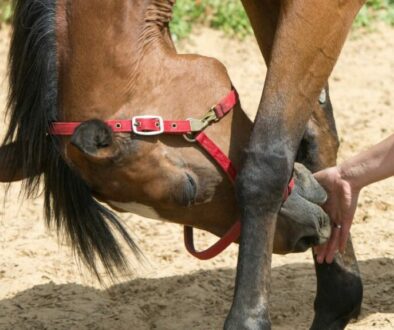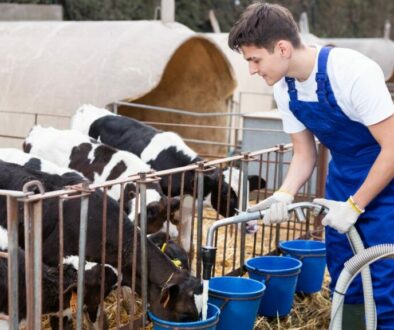How To Become A Farrier?
If you have an interest in working with horses and a passion for metalworking, then a career as a farrier may be the perfect fit for you. A farrier is a skilled professional who specializes in the care and maintenance of horses’ hooves. In this comprehensive guide, we will explore the necessary steps, skills, and benefits of working as a farrier.
Steps To Becoming A Farrier
Before you can start your journey as a successful farrier, there are several steps you must take.
- Farrier Education Program
First and foremost, you need to complete a formal education program in farriery to gain the necessary knowledge and skills in the field. Many vocational schools and community colleges offer farrier programs that span either six months or two years, with the latter providing more in-depth training.
During your time in a farrier program, you’ll learn about the anatomy of the horse’s hoof, the different types of shoes and their applications, and the proper way to trim and shape a hoof. You’ll also learn about the different tools used in farriery, such as rasps, nippers, and anvils, and how to maintain them. - Practical Experience
In addition to formal education, you’ll also need practical experience. Some students choose to enroll in internships or apprenticeships to gain hands-on learning experience, working under experienced farriers. During this time, you’ll learn how to perfect your horseshoeing skills, forge and manipulate metal, and safely handle horses during the shoeing process.
Working as an apprentice or intern also gives you the opportunity to build connections in the farriery industry. You’ll meet other farriers, horse owners, and trainers, who can provide you with valuable advice and potential job opportunities. - Farrier Certification
Once you’ve completed your education and gained some practical experience, the next step is to get certified. The American Farrier’s Association and other governing bodies offer certification courses that include written and practical exams to test your skills and knowledge. By getting certified, you’ll establish credibility and increase your employability.
- Physical Fitness
Being a farrier is a physically demanding job, so it’s important to stay in good physical shape. You’ll be on your feet for long periods of time, lifting heavy equipment, and working in all types of weather conditions. It’s also important to have good communication skills, as you’ll be working closely with horse owners and trainers to ensure their horses receive the best possible care.
Farriers can work in a variety of settings, including private stables, racetracks, and veterinary clinics. Some farriers even start their own businesses, traveling to different barns and horse shows to provide their services.
Overall, becoming a farrier requires dedication, hard work, and a passion for working with horses. With the right education, experience, and certification, you can turn your love for horses into a rewarding career.
Skills Needed For Becoming A Farrier
Becoming a successful farrier requires a diverse set of skills and traits. One of the most important skills is good hand-eye coordination, as you’ll be working with precision instruments and forging metal. In addition to this, you’ll need to be well-versed in the anatomy of horses, as this knowledge will help you to understand the unique needs of each animal that you work with.
You’ll also need exceptional strength and fitness, as the job is highly physical. The tools and equipment that you’ll be working with can be heavy and difficult to handle, and you’ll need to be able to work for extended periods of time without getting fatigued. Additionally, you should possess excellent communication skills, as you’ll be interacting with horse owners and trainers, explaining treatment options and answering questions. You’ll need to be able to communicate effectively with people from all walks of life, and to be able to explain complex concepts in a way that is easy for your clients to understand.
Other essential skills for farriers include good horse handling, problem-solving, and attention to detail. You need to have good judgment and the ability to adapt to unforeseen circumstances, as every horse and situation is unique. Equally important is patience, as working with horses can be challenging and requires a calm and steady demeanor.
As a farrier, you’ll also need to be able to work independently, as you’ll often be working on your own, without the supervision of a boss or manager. This means that you’ll need to be able to manage your time effectively, and to be able to prioritize tasks in order to ensure that you meet your clients’ needs.
Finally, it’s worth noting that becoming a successful farrier requires a great deal of dedication and hard work. You’ll need to be willing to put in long hours, and to be constantly learning and improving your skills. However, if you’re passionate about horses and are willing to put in the effort, becoming a farrier can be an incredibly rewarding career choice.
What is a Farrier?
Farriers play a crucial role in the equine industry, as the health and well-being of a horse’s hooves can greatly impact its performance and quality of life. In addition to horseshoeing and treating hoof ailments, farriers often work closely with horse owners and trainers to develop customized shoeing plans that take into account the horse’s specific needs, such as its age, breed, and level of activity.
Many farriers also have a deep understanding of equine anatomy and physiology, which allows them to identify and address issues that may be affecting a horse’s hooves. For example, a horse with a conformational issue, such as a club foot or a long toe, may require specialized shoeing techniques to help correct the problem.
Farriers may work independently or as part of a team that includes equine veterinarians and other equine professionals. They may also attend continuing education courses and workshops to stay up-to-date on the latest techniques and technologies in the field of farriery.
Overall, the work of a farrier is both physically demanding and intellectually challenging. It requires a combination of technical skill, creativity, and a deep love and respect for horses. If you are interested in pursuing a career as a farrier, there are many resources available to help you get started, including apprenticeship programs, certification courses, and professional organizations.
The Benefits of Working as A Farrier
Working as a farrier can be an incredibly rewarding career path for those who are passionate about working with horses. Farriers play a crucial role in ensuring the health and well-being of horses by providing them with proper hoof care. This involves trimming and shaping the hooves, as well as fitting and applying horseshoes.
One of the primary benefits of working as a farrier is that you’ll have the opportunity to work independently and set your own schedule. This level of autonomy allows you to manage your workload and prioritize your time effectively. You’ll also have the flexibility to choose the types of clients you work with and the locations you travel to.
Another benefit of being a farrier is the satisfaction of working with animals that need your help. Horses rely on their hooves for mobility and stability, and proper hoof care is essential to their overall health. By providing this care, you’ll be making a positive impact on the lives of these animals.
Farriers can also earn a competitive salary, and the demand for skilled and experienced farriers is high. According to ZipRecruiter, as of 2024, depending on your state, you can earn $26,932 to $41,278 annually in the USA. As the horse industry continues to grow, so does the need for qualified professionals who can provide top-notch hoof care. This means that there are ample opportunities for farriers to build a successful and lucrative career.
Additionally, as a farrier, you’ll have the opportunity to work with different breeds of horses and meet horse owners from all walks of life. Whether you’re working with racehorses or therapy horses, you’ll have the chance to learn about different equine disciplines and build relationships with horse owners and trainers.
It’s important to note that becoming a farrier requires a combination of formal education, practical experience, and certification. You’ll need to attend a farrier school or apprenticeship program to learn the necessary skills and techniques. You’ll also need to pass certification exams to demonstrate your proficiency in the field.
Furthermore, you’ll need a diverse set of skills and traits to succeed as a farrier. Good hand-eye coordination is essential for working with precision and accuracy. Strength is also crucial, as the job requires physical labor and the ability to handle large animals. Communication skills are important for building relationships with clients and understanding their needs. Attention to detail, problem-solving abilities, and patience are also valuable traits for farriers to possess.
Working as a farrier is a highly rewarding career path with many benefits. If you’re passionate about working with horses and have the necessary skills and traits, this could be the perfect career for you.




